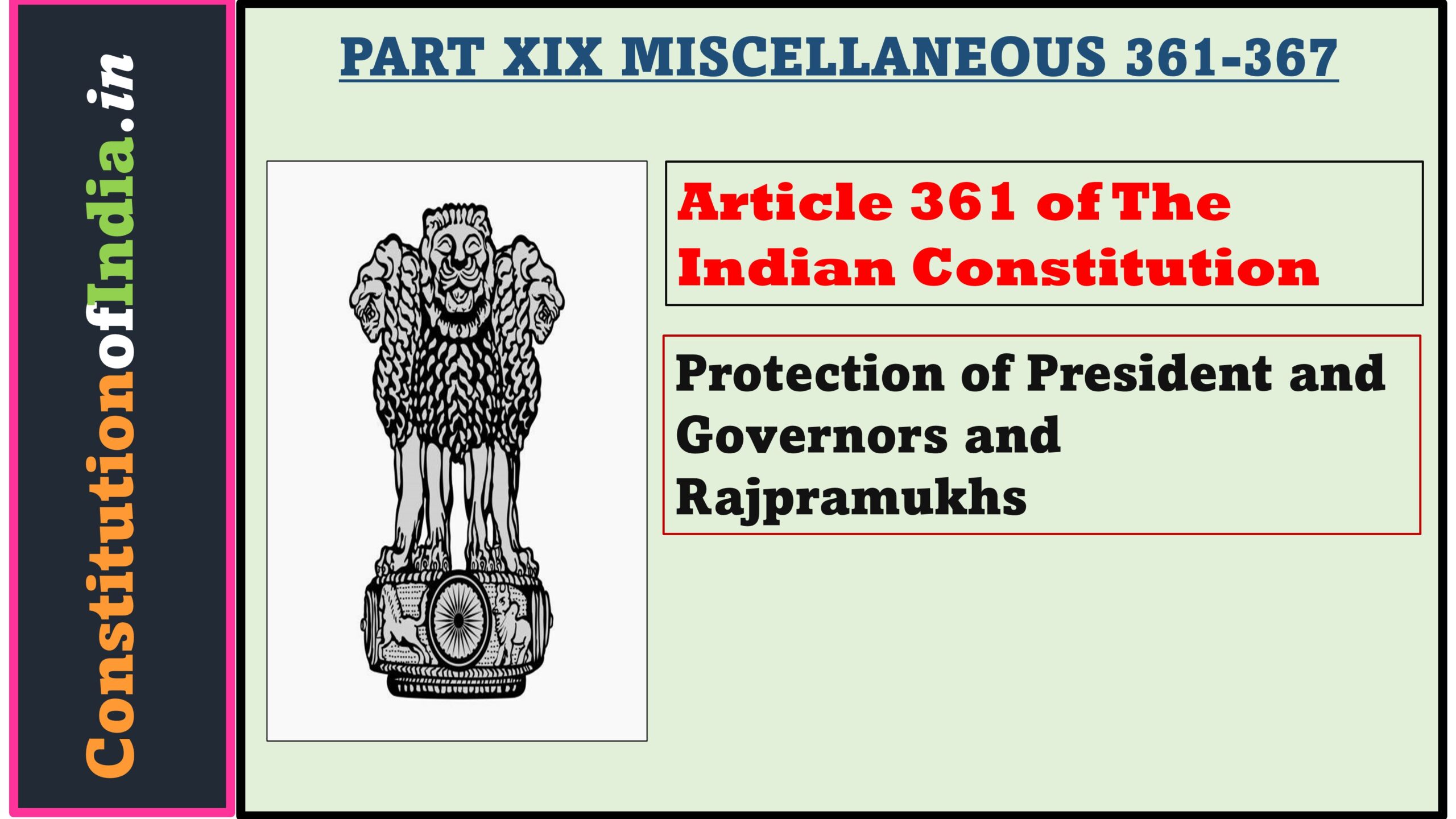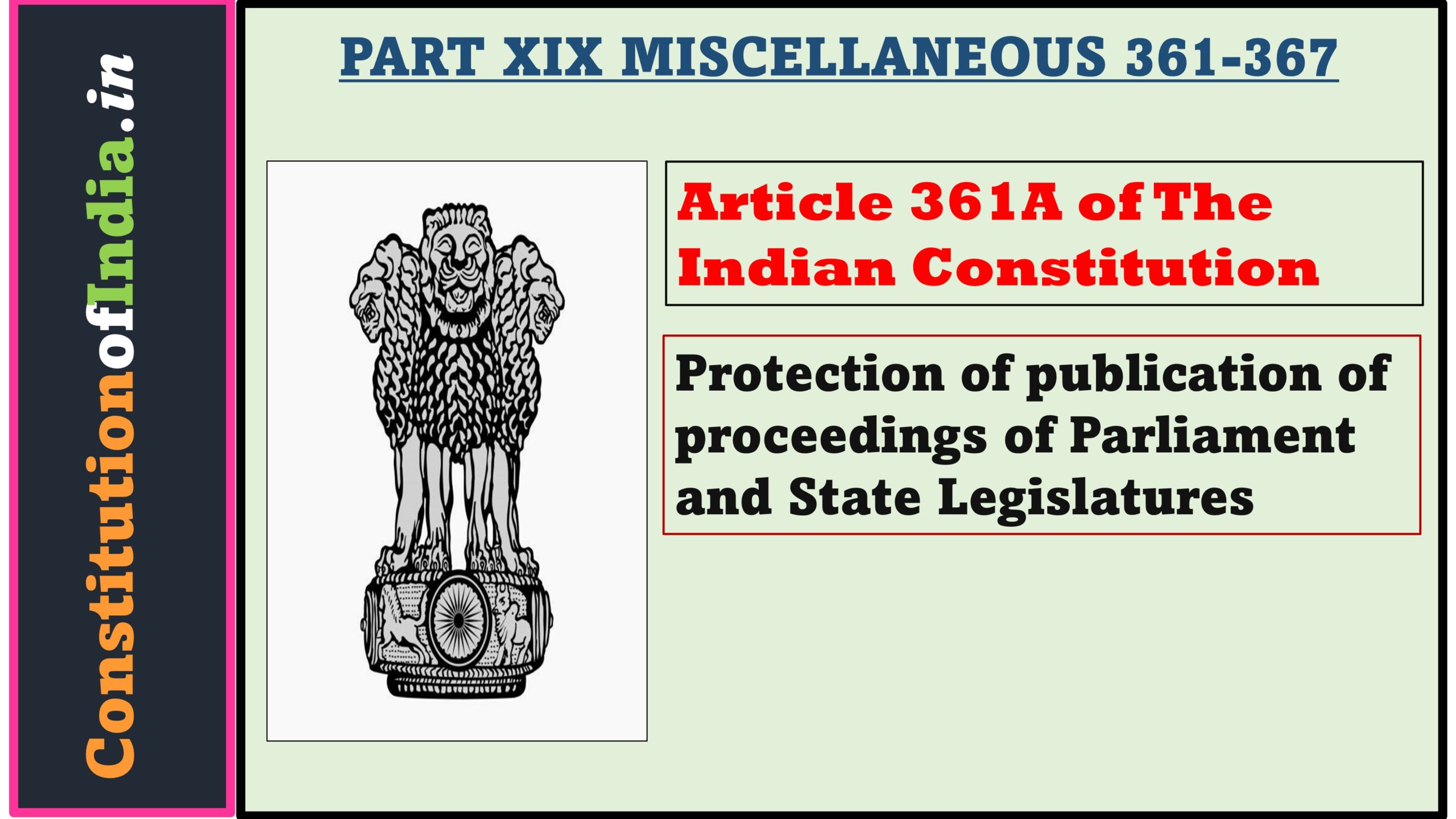Article 361 of Indian Constitution: Protection of President and Governors and Rajpramukhs.

Article 361 Protection of President and Governors and Rajpramukhs – Constitution Of India.
(1) The President, or the Governor or Rajpramukh of a State, shall not be answerable to any court for the exercise and performance of the powers and duties of his office or for any act done or purporting to be done by him in the exercise and performance of those powers and duties: Provided that the conduct of the President may be brought under review by any court, tribunal or body appointed or designated by either House of Parliament for the investigation of a charge under article 61: Provided further that nothing in this clause shall be construed as restricting the right of any person to bring appropriate proceedings against the Government of India or the Government of a State.
(2) No criminal proceedings whatsoever shall be instituted or continued against the President, or the Governor 1 *** of a State, in any court during his term of office.
(3) No process for the arrest or imprisonment of the President, or the Governor 1 *** of a State, shall issue from any court during his term of office.
(4) No civil proceedings in which relief is claimed against the President, or the Governor 1 *** of a State, shall be instituted during his term of office in any court in respect of any act done or purporting to be done by him in his personal capacity, whether before or after he entered upon his office as President, or as Governor 1 *** of such State, until the expiration of two months next after notice in writing has been delivered to the President or the Governor 2 ***, as the case may be, or left at his office stating the nature of the proceedings, the cause of action therefor, the name, description and place of residence of the party by whom such proceedings are to be instituted and the relief which he claims.
Article 361A

(1) No person shall be liable to any proceedings, civil or criminal, in any court in respect of the publication in a newspaper of a substantially true report of any proceedings of either House of Parliament or the Legislative Assembly, or, as the case may be, either House of the Legislature, of a State, unless the publication is proved to have been made with malice: Provided that nothing in this clause shall apply to the publication of any report of the proceedings of a secret sitting of either House of Parliament or the Legislative Assembly, or, as the case may be, either House of the Legislature, of a State.
(2) Clause (1) shall apply in relation to reports or matters broadcast by means of wireless telegraphy as part of any programme or service provided by means of a broadcasting station as it applies in relation to reports or matters published in a newspaper. Explanation.—In this article, “newspaper” includes a news agency report containing material for publication in a newspaper. Article 361B A member of a House belonging to any political party who is disqualified for being a member of the House under paragraph 2 of the Tenth Schedule shall also be disqualified to hold any remunerative political post for duration of the period commencing from the date of his disqualification till the date on which the term of his office as such member would expire or till the date on which he contests an election to a House and is declared elected, whichever is earlier.
Explanation.—For the purposes of this article,— (a) the expression “House” has the meaning assigned to it in clause (a) of paragraph 1 of the Tenth Schedule; (b) the expression “remunerative political post” means any office— (i) under the Government of India or the Government of a State where the salary or remuneration for such office is paid out of the public revenue of the Government of India or the Government of the State, as the case may be; or (ii) under a body, whether incorporated or not, which is wholly or partially owned by the Government of India or the Government of a State and the salary or remuneration for such office is paid by such body, except where such salary or remuneration paid is compensatory in nature.